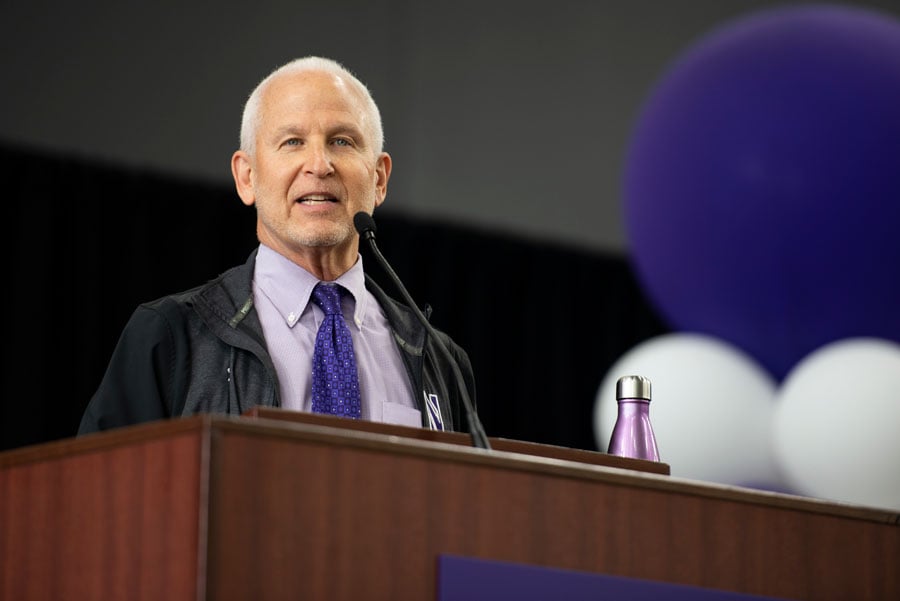“Greatest Gen 2.0”: Schapiro writes on Gen Z’s resilience, burdens in opinion piece
Daily file photo by Evan Robinson-Johnson
University President Morton Schapiro. When asked about police violence against student protesters, he said students also engaged in violent tactics.
October 13, 2020
In an Oct. 12 opinion piece published in Inside Higher Ed, University President Morton Schapiro discussed the challenges current high school and college students are facing and calls for older generations to support them.
The article, titled “The Greatest Generation Redux?” was co-written with Barry Glassner, the former president of Lewis and Clark College, and asserts Generation Z has faced challenges unlike any other since the World War II generation. Born in the shadow of the Sept. 11 attacks and as children of the Great Recession, Schapiro and Glassner wrote, Gen Z is now facing the challenge of the COVID-19 pandemic.
“Turned out of their high schools and colleges, locked down, their seemingly infinite horizon shrank to the walls of their parents’ homes,” Schapiro and Glassner wrote. “And that is for the lucky ones with homes that could accommodate them.”
Though young adults are at a lower risk of death from the virus, Schapiro and Glassner wrote, the pandemic has caused Gen Z to suffer “economically and emotionally” more than older generations. And the challenges will not end with the pandemic — Gen Z will be tasked with “rebuilding a devastated economy while reckoning with long-standing racial and other injustices.”
Schapiro and Glassner call for an “equivalent of the GI Bill” which assisted members of the World War II generation, but one more equitably distributed to women and Black people. Gen Z, they wrote, will need assistance from older generations, but has already shown promise in dealing with climate change, inequality, systemic racism and “the many other ills they are inheriting.”
Despite his expressed support of the younger generation’s advocacy, Schapiro’s actions as University President have suggested he is not fully supportive of many Northwestern students’ calls for change.
Schapiro has been criticized for ignoring repeated demands from students to defund and disband University Police and invest in groups that support Black students. Student groups such as NU Community Not Cops continue to organize for this cause, and Schapiro and the rest of NU administration have yet to commit to divestment from the department.
“We are optimistic, because we have seen the new generation in action,” Schapiro and Glassner wrote. “They have challenged and inspired us in the classroom and confronted the status quo by marching in the streets and advocating for change.”
Email: [email protected]
Twitter: @em_sakai
Related Stories:


